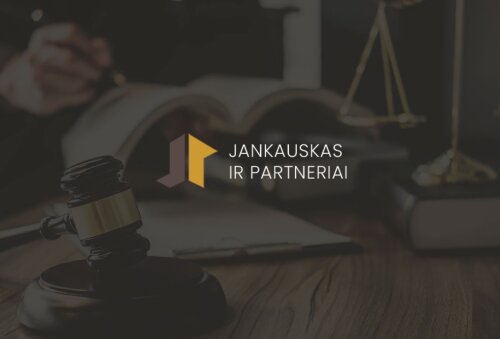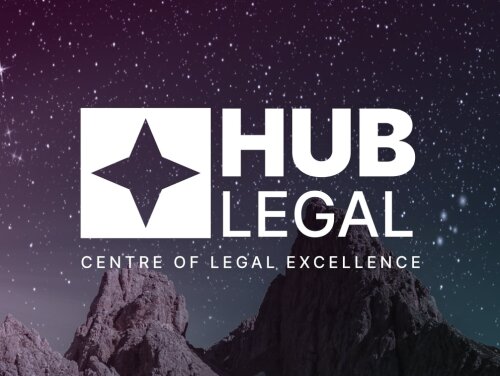Best ESG Advisory & Compliance Lawyers in Republic of Lithuania
Share your needs with us, get contacted by law firms.
Free. Takes 2 min.
Or refine your search by selecting a city:
List of the best lawyers in Republic of Lithuania
About ESG Advisory & Compliance Law in Republic of Lithuania
Environmental, Social, and Governance (ESG) Advisory & Compliance law in the Republic of Lithuania is a developing branch of business law. It focuses on helping companies and organizations operate transparently and responsibly in relation to environmental protection, social responsibility, and ethical governance. Lithuanian law is influenced by both local legislation and the evolving requirements of the European Union, particularly with the EU Green Deal, Corporate Sustainability Reporting Directive (CSRD), and Sustainable Finance Disclosure Regulation (SFDR). As more investors and regulatory bodies demand ethical practices, ESG advisory and compliance are becoming essential for businesses seeking to operate in Lithuania, attract investment, and avoid legal pitfalls.
Why You May Need a Lawyer
Seeking legal advice in ESG advisory and compliance is recommended in several situations. A lawyer can assist when your company is navigating new ESG regulations, facing audits or investigations, or entering into mergers and acquisitions where ESG due diligence is expected. Businesses may also need help drafting and implementing internal ESG policies, responding to shareholder or regulator inquiries, or reporting non-financial information under EU and Lithuanian laws. Moreover, with growing stakeholder expectations, a lawyer can ensure your public statements and sustainability reports align with legal and ethical standards, mitigating risks of greenwashing or non-compliance penalties.
Local Laws Overview
Lithuanian laws relevant to ESG continue to develop based on both national priorities and the adoption of EU directives. Key legal aspects include:
- Environmental Protection Law sets out responsibilities for environmental management, pollution control, and resource consumption.
- The Corporate Governance Code encourages ethical decision making and transparent reporting.
- Labor Code requirements impact social compliance, employee rights, diversity, and workplace safety.
- Implementation of the EU Non-Financial Reporting Directive (NFRD) now replaced by the CSRD, expanding sustainability reporting obligations for medium and large companies.
- Sustainable Finance regulations, including SFDR, require financial market participants to disclose ESG strategies and impacts.
- Anti-corruption and anti-money laundering laws connect with governance standards and due diligence expectations.
Companies across industries are expected to integrate ESG factors into decision making and record keeping. Non-compliance can result in administrative liability, fines, reputational damage, or even criminal responsibility in cases of fraud or ecological damage.
Frequently Asked Questions
What is ESG and why is it important for companies in Lithuania?
ESG stands for Environmental, Social, and Governance. It covers practices related to environmental stewardship, social responsibility, and ethical leadership. ESG is increasingly important in Lithuania for regulatory compliance, investor confidence, and long-term business sustainability.
Which Lithuanian companies are subject to ESG reporting obligations?
Medium and large companies, as well as parent companies of large groups, are generally required to publish non-financial statements or sustainability reports under the CSRD and Lithuanian company law. Smaller entities may be impacted if they work with large companies or international partners.
What are the main ESG risks Lithuanian businesses face?
Main risks include regulatory non-compliance, environmental penalties, reputational harm, loss of access to financing, employee dissatisfaction, and legal action from regulators or stakeholders.
How does EU law influence ESG compliance in Lithuania?
Lithuania, as an EU member, implements European directives and regulations such as the CSRD, SFDR, and Taxonomy Regulation. Local laws are regularly updated to maintain alignment with the EU’s sustainability agenda.
Can I be held legally responsible for false or misleading ESG disclosures?
Yes. Providing inaccurate or misleading information in sustainability reports or public statements can lead to administrative fines, civil claims, or criminal liability depending on the circumstances.
Do Lithuanian laws require companies to have specific ESG policies?
While not always specifically mandated, large companies must demonstrate ESG policy implementation through required reporting. Many businesses adopt ESG policies proactively to meet legal and stakeholder expectations.
How do Lithuanian environmental laws connect with ESG?
Environmental laws set requirements for pollution prevention, emissions management, waste treatment, and resource use, which form the Environmental part of ESG. Compliance with these laws is critical for ESG performance.
Is ESG due diligence required for mergers and acquisitions in Lithuania?
While not explicitly mandated, ESG due diligence is increasingly part of best practices in transactions, as investors and stakeholders seek to identify and manage ESG risks before closing deals.
Are there government incentives for ESG initiatives in Lithuania?
Some government and EU funding programs support sustainable investments, green technologies, and energy efficiency. Legal counsel can help businesses identify and apply for these opportunities.
How can a lawyer help my organization comply with ESG requirements?
A lawyer can assess your company’s current ESG practices, identify legal gaps, draft compliant policies, prepare sustainability reports, represent you before regulators, and provide ongoing advice tailored to changing laws.
Additional Resources
If you need more information about ESG advisory and compliance in Lithuania, consider consulting the following:
- Ministry of Environment of the Republic of Lithuania - oversees environmental compliance and sustainability policy.
- Ministry of Economy and Innovation - supports responsible business and innovation initiatives related to ESG.
- Lithuanian National Energy Regulatory Council - resources on sustainable energy regulations.
- State Labour Inspectorate - information on occupational health, safety, and social criteria.
- European Commission - updates on EU-wide ESG frameworks and directives.
- Lithuanian Business Confederation - guidance for businesses on practical ESG implementation.
- Chamber of Auditors of Lithuania - for assurance and verification of non-financial disclosures.
Next Steps
If you believe your organization needs guidance on ESG advisory and compliance, consider the following approach:
- Evaluate your operations for potential ESG risks and gaps.
- Gather relevant internal policies, disclosures, and reports.
- Identify whether you are subject to mandatory sustainability reporting.
- Contact an experienced Lithuanian attorney or ESG advisory firm specializing in corporate, environmental, and labor compliance.
- Consult with governmental bodies or organizations for educational resources and preliminary advice.
- Develop a plan to address current and upcoming ESG requirements, including staff training, policy updates, and setting up reporting infrastructure.
- Schedule regular legal reviews to stay compliant with changing laws and best practices.
By being proactive, you can avoid regulatory sanctions, boost your reputation, and position your business for success in the evolving ESG landscape of Lithuania.
Lawzana helps you find the best lawyers and law firms in Republic of Lithuania through a curated and pre-screened list of qualified legal professionals. Our platform offers rankings and detailed profiles of attorneys and law firms, allowing you to compare based on practice areas, including ESG Advisory & Compliance, experience, and client feedback.
Each profile includes a description of the firm's areas of practice, client reviews, team members and partners, year of establishment, spoken languages, office locations, contact information, social media presence, and any published articles or resources. Most firms on our platform speak English and are experienced in both local and international legal matters.
Get a quote from top-rated law firms in Republic of Lithuania — quickly, securely, and without unnecessary hassle.
Disclaimer:
The information provided on this page is for general informational purposes only and does not constitute legal advice. While we strive to ensure the accuracy and relevance of the content, legal information may change over time, and interpretations of the law can vary. You should always consult with a qualified legal professional for advice specific to your situation.
We disclaim all liability for actions taken or not taken based on the content of this page. If you believe any information is incorrect or outdated, please contact us, and we will review and update it where appropriate.
Browse esg advisory & compliance law firms by city in Republic of Lithuania
Refine your search by selecting a city.















